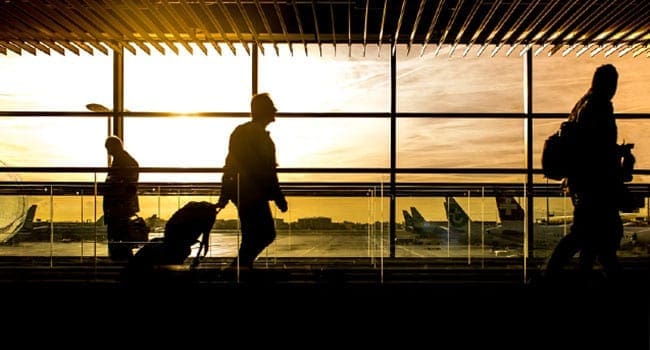 Travellers will be annoyed at yet another hike in the airport improvement fee (AIF), from $20 to $25, on every airline ticket originating at Vancouver International Airport (YVR).
Travellers will be annoyed at yet another hike in the airport improvement fee (AIF), from $20 to $25, on every airline ticket originating at Vancouver International Airport (YVR).
But that’s a relatively minor irritant compared to another major airport expense that raises costs to airlines and, as a result, air fares.
The land leases that the federal government requires of the 26 largest public sector airports under its control in Canada are entirely avoidable.
In effect, Ottawa is charging itself this expense, since it owns those 26 airports.
At YVR, the cost in 2018 was $59.53 million, or 15.5 per cent of all non-finance (interest, mostly) expenses and just slightly below the total for all salaries and benefits. It’s like the owner of a small business paying themselves high dividends they can’t really afford, raising their costs and making it hard to keep afloat.
If this expense was eliminated by Ottawa – simply recognizing that it’s charging itself money and raising costs for everyone (and lowering potential revenue by reducing demand for pricey airline tickets) – not only could YVR refrain from raising the AIF by $5, it could also lower its landing fees and terminal fees for airlines (which were $48 million and $95 million respectively in 2018).
Part of this fee reduction would, given competition in the industry, trickle down to travellers in the form of lower air fares. This would increase demand for air travel and bring more cross-border travellers who now land in Bellingham or Seattle, Wash., which have lower expenses and cheaper flights than in Canada.
The same would be true of Buffalo and other U.S. airports that compete against Toronto Pearson International and other airports in major Canadian cities.
Politicians and bureaucrats don’t appear to realize that making the largest public-sector airports autonomous entities several years ago didn’t change the fundamental relationship those airports have with the federal government. They are still subsidiaries of the government in the same way that Canada Mortgage and Housing Corp. or Business Development Bank of Canada are.
The government needs to apply the same ordinary commercial sense that management of a holding company or conglomerate would have. Stop charging a fee to a wholly-owned subsidiary that raises its costs and doesn’t produce any material benefit other than painfully extracting cash that makes that subsidiary’s expenses higher than they need to be.
Canada’s largest airports and the national carriers they serve are already operating at a disadvantage versus America and global rivals. They face higher taxes and aircraft leasing costs, among other expenses, causing a price advantage in favour of U.S. carriers of roughly 30 per cent, according to the Conference Board of Canada.
The federal government should be doing everything in its power to remove obstacles to efficiency, at the same time lowering prices for businesses and hard-pressed consumers. The land rent fee is an easy and logical one to eliminate.
The government can recover any losses by partially or entirely divesting itself of airports – which would now have better bottom lines as a result of a higher sustainable cash flow.
End the rental fees and lower ticket prices will follow.
Ian Madsen is a senior policy analyst with the Frontier Centre for Public Policy.
Ian is a Troy Media Thought Leader. Why aren’t you?
The views, opinions and positions expressed by columnists and contributors are the author’s alone. They do not inherently or expressly reflect the views, opinions and/or positions of our publication.

